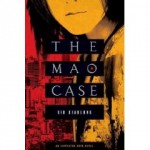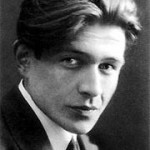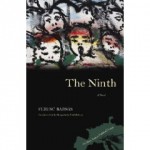World Books Update
By Bill Marx
 I am juggling editing and writing duties between two blogs, theartsfuse and World Books for the website of BBC/PRI’s radio program The World, which is produced at WGBH in Boston. The section aims to be a critical conversation made up of reviews, commentaries, interviews, podcasts, and news stories about international literature. Respected fiction and non-fiction writers as well as journalists invite readers to evaluate books and draw connections between culture and current events. For interested artsfuse readers who are not familiar with World Books here is a round-up of what was posted last week on the page, along with some coming attractions.
I am juggling editing and writing duties between two blogs, theartsfuse and World Books for the website of BBC/PRI’s radio program The World, which is produced at WGBH in Boston. The section aims to be a critical conversation made up of reviews, commentaries, interviews, podcasts, and news stories about international literature. Respected fiction and non-fiction writers as well as journalists invite readers to evaluate books and draw connections between culture and current events. For interested artsfuse readers who are not familiar with World Books here is a round-up of what was posted last week on the page, along with some coming attractions.
Posted on World Books Last week:
Tommy Wallach reviews Marcel (son of Paul) Theroux’s novel “Far North,” a post-apocalyptic novel set in Siberia that the critic believes does “a remarkable job evoking the breath-freezing cold of that world, giving even the book’s most implausible ideas the ring of truth.”
Mr. Short Fuse, Harvey Blume, examines “The Mao Case,” a mystery novel by Qiu Xiaolon in which the author’s favorite gumshoe, Chief Inspector Chen Cao of the Shanghai police force, looks into the spooky revival of Mao worship in contemporary China.
I posted an interview with John Bolcom, who translated the remarkable collection of stories “There’s Nothing I Can Do When I Think of You Late At Night” by Cao Naiqian. The author, in his day job, is a police detective in the Public Security Bureau of Datong City in rural China, Sharp, bleak, and minimal, these tales of peasant life on the edge revolve around incest, bestiality, suicide, murder, and mental illness. After I read the volume I had to talk to Bolcom about Naiqian, whose brusque style offers a compelling alternative to the kind of over-the-top Chinese fiction that gets translated.

Gaito Gazdanov -- Russian Cab Driver Extraordinaire

I have also posted a new World Books podcast, an interview with Hungarian writer Ferenc Barnás. His autobiographical novel, “The Ninth” provides an alternately bleak and antic look at life in Hungary under Communism. The narrator is a nine-year-old boy, the ninth child in an eccentric family defeated by material and spiritual poverty. Out of the boy’s struggle to survive amid squalor Barnás creates a nervy moral fable.
